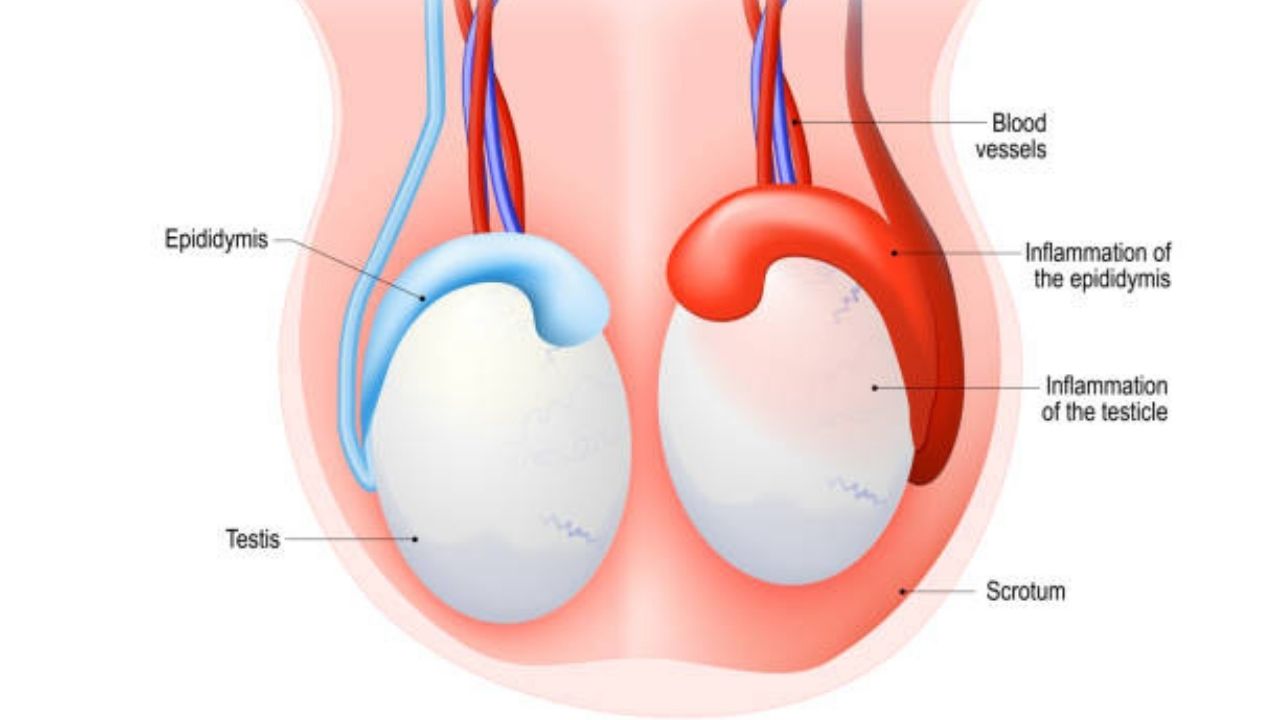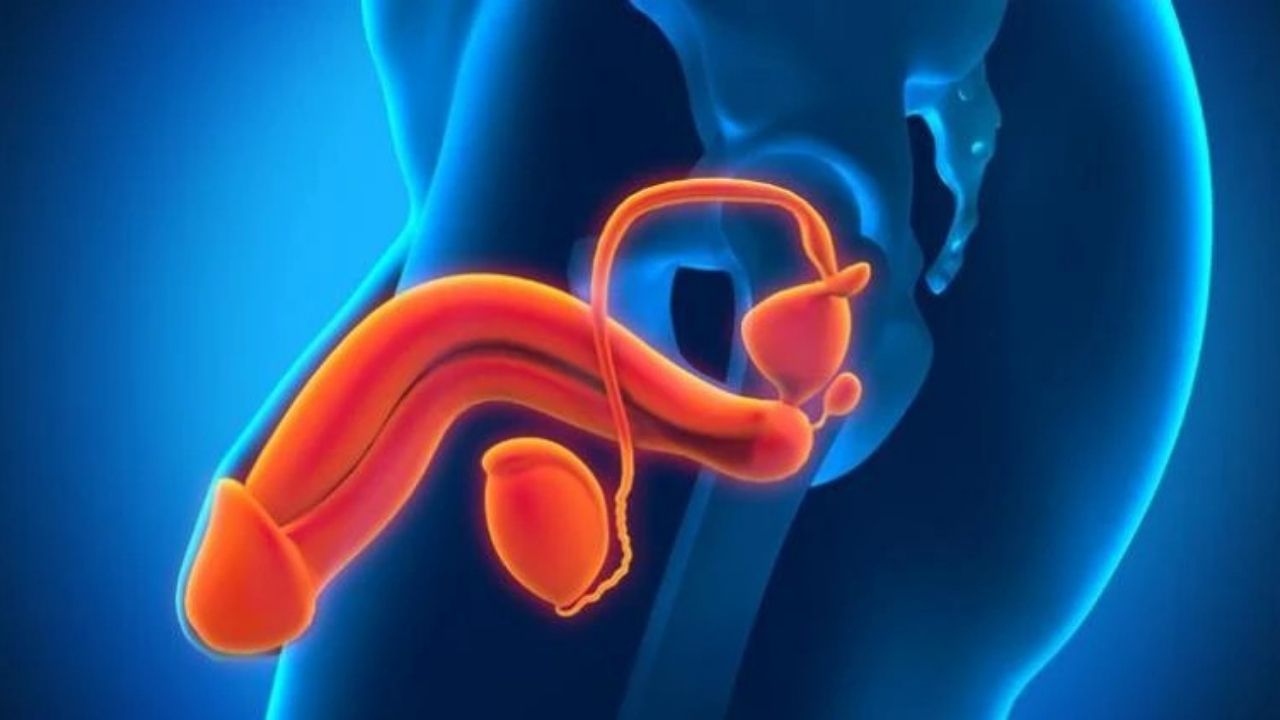Epididymitis is inflammation of the epididymis, the tubular structure in which sperm mature and which connects the testicle to the vas deferens. This condition causes severe pain and swelling and is often very uncomfortable for men. In addition, during the time that the disease lasts, the man loses sexual potency.
Epididymitis is usually caused by a bacterial infection or by sexually transmitted infections, such as gonorrhea and chlamydia. However, the etiology of this pathology can also be viral and fungal, although they are rarer cases. Read more about symptoms, causes, treatment and does ejaculating hurt epididymitis?
Causes of epididymitis
The main cause of epididymitis is the spread of microorganisms from tissues near the epididymis, such as the urethra, prostate, and bladder. Depending on the type of causal agent, it is usually differentiated between bacterial, fungal, viral and non-bacterial epididymitis.
The most common reasons that can lead to inflammation of the epididymis are listed below:
• Sexually transmitted infections:
Caused by bacteria such as Neisseria gonorrhoea (which causes gonorrhea), and Chlamydia trachomatis (which causes chlamydiae). This is the most common cause of epididymitis in men between the ages of 19 and 35 who are sexually active.
• Bacterial infections:
Produced by bacteria such as Escherichia coli, Mycobacterium tuberculosis and ureoplasma. This case is typical of boys and men over 35 years of age.
• Others
Taking a drug for abnormal heart rhythms called amiodarone or genitourinary malformations in children under 2 years of age can cause epididymitis. In addition, fungal or viral infections can also be a cause of inflammation of the epididymis.
Risk factors for epididymitis
This pathology is only present in men and, usually, if they are between 19 and 35 years old, it is usually due to sexually transmitted infections. Therefore, some risk factors in this group of patients are the following:
- Having sex with different partners frequently.
- Having a previous sexually transmitted disease (STD).
- Do not use the condom.
When epididymitis is independent of sexual transmission, other factors that increase the risk of suffering from this condition are:
- Not being circumcised.
- Recent surgery on the urinary tract.
- Regular use of a urethral catheter.
- Prostate disorders such as prostatic hypertrophy and prostatitis.
- Tuberculosis.
For all this, the most appropriate thing is to maintain safe sexual relations and always follow the guidelines established by specialists.
Symptoms of epididymitis
Usually, the symptoms of epididymitis appear suddenly and can range from mild to severe depending on the condition of each patient. When the inflammation of the epididymis lasts more than 6 weeks or reappears after some time, it is chronic epididymitis.
The most frequent clinical manifestations of epididymitis are the following, although the presence of all of them is not necessary:
- Pain and unilateral swelling of the genital area.
- Sensation of heaviness and heat in a testicle.
- Pain or discomfort when urinating, accompanied by frequent urination.
- Blood in urine and semen.
- Discharge from the penis.
Sometimes, inflammation of the epididymis also leads to inflammation of the testicles, which is called epididymo -orchitis. Testicle pain should always be taken into account and go to the doctor immediately, especially if they feel stinging after a blow, even if 2 or 3 days have passed.
Diagnosis of epididymitis

Sometimes epididymitis can be confused with testicular torsion. Therefore, it is vitally important to establish an adequate diagnosis to choose the best treatment.
Testicular torsion is a condition in men characterized by the bending of the arteries, veins, nerves and spermatic cord, which causes blockage of the circulation of seminal fluid. Testicular torsion is of unknown cause and appears suddenly.
The doctor will be in charge of performing a physical examination of the penis, prostate and scrotum. In addition, the specialist will ask the patient about the symptoms and any previous pathology to take the medical history.
Subsequently, the request for the following medical tests will be necessary:
• Blood and urine tests:
To assess for bacterial infection.
• Ultrasound:
Allows the study of the blood flow of the testicles to rule out testicular torsion. This test is essential, since testicular torsion needs surgery urgently.
• Semen analysis:
Performing a seminogram is also an option to study the presence of leukocytes in the semen, which would be indicative of infection.
Treatment of epididymitis
The treatment of epididymitis depends on the cause that causes this inflammation. Specifically, the doctor will prescribe antibiotics to curb the bacterial infection.
In cases due to sexual transmission, specific antibiotics are used for the bacteria that cause it and the sexual partners of the patients should also be treated.
Sometimes the administration of analgesics and anti- inflammatories is necessary to calm swelling and pain.
On the other hand, if the epididymitis is caused by the drug amiodarone, the treatment will consist of a lower dose or change of medication directly.
Other recommendations established by specialists for patients with epididymitis are:
- Bed rest elevating the scrotum.
- Apply ice to the genital area.
- Visit the doctor after a few days of treatment.
In the event that no treatment is provided, that is, a poorly cured epididymitis, this condition can become chronic. In this case, the man does not show swelling, but he does show pain in the genital area. Cases of epididymitis that are complicated can cause infertility, so it is important to see a doctor as soon as possible to treat this infection and avoid future complications.
Epididymitis and fertility
Generally, when a man suffers from an STD there may be sequelae and epididymal obstruction or testicular infarction may appear. Therefore, sperm vitality would decrease and lead to problems in male fertility.
The main reason for this is that when the epididymis is obstructed, the sperm will not be able to go outside and azoospermia will occur, that is, the absence of sperm in the ejaculate.
Pregnancy naturally is complicated in this situation and assisted reproduction techniques must be used. If there is azoospermia, a testicular biopsy will be necessary for the recovery of sperm and later an in vitro fertilization will be carried out by means of sperm microinjection (IVF-ICSI).
In addition, the inflammation of the epididymis produces an increase in the temperature of the testicular area, which negatively affects the production of sperm (spermatogenesis). Therefore, in the most severe cases of epididymitis, the solution would be to use donor sperm to achieve pregnancy.
Can I exercise if I have epididymitis?
Epididymitis is an inflammation of a portion of the testicle called the epididymis, which is located at the back of the testicle. The function of the epididymis is to store and transport sperm. Among the causes of epididymitis, the most common are sexually transmitted infections such as chlamydia and gonorrhea, other urinary tract and prostate infections, or trauma.
The inflammation usually produces significant pain and redness and swelling of the testicle. Rest is among the measures recommended to improve symptoms. Movement of the testicle can worsen inflammation and cause pain, so it is not recommended. Bed rest, lying down with the scrotum elevated, applying cold compresses to the swollen area, wearing a testicular jockstrap,
What factors predispose to epididymitis?
Factors that increase the risk of epididymitis or inflammation of the epididymis are recent surgeries in men, structural problems in the urinary tract, frequent use of catheters, sexual intercourse and prostatic hypertrophy. It should be noted that epididymitis is usually due to a spread of a bacterial infection.
Does ejaculating hurt epididymitis?

The epididymis is a tubular structure responsible for transporting sperm from the testis to the seminal vesicle. Acute or chronic inflammation of the same is called epididymitis. The most frequent causes of this condition are infectious, and the symptoms are recognized by testicular pain, increased scrotal size, urethral discharge and even fever. Erectile dysfunctions in cases of epididymitis are secondary to the symptoms mentioned.
Can you have sexual intercourse during treatment for epididymitis?
Yes, in principle there is no problem. However, specialists recommend using a condom to avoid any type of contagion to the partner if the cause of epididymitis is a bacterial infection.
How long does epididymitis last?
The inflammation of the epididymis can persist for approximately 6-8 weeks. However, since this condition is diagnosed and the appropriate treatment is administered, the patient should notice an improvement in relation to the discomfort, as well as a decrease in inflammation. Otherwise, it will be necessary to consult with the urologist again to find out what guideline to follow.
Can epididymitis be a complication of vasectomy?
Yes. Once the vasectomy is performed, the man may feel a feeling of heaviness or discomfort in the genital area. In addition, he may have some inflammation and testicular pain, which could lead to epididymitis. In these cases, it is essential to inform the specialist so that he can establish the best treatment for each particular case and some advice to alleviate the patient’s symptoms.
Can epididymitis be prevented?
There is no general measure that can be used to prevent epididymitis. However, if there is a suspicion of a urinary tract infection, it is important to have it treated early. It is also advisable for men who have problems urinating to seek urological treatment.
If the doctor treats such diseases carefully, it is less likely that the bacteria involved will ascend into the vas deferens. In this way, epididymitis can be indirectly prevented.
For men who frequently have different sexual partners, it is highly advisable to use condoms. This reduces the risk of contracting sexually transmitted diseases. In this way, they prevent epididymitis caused by gonococci or chlamydia.
